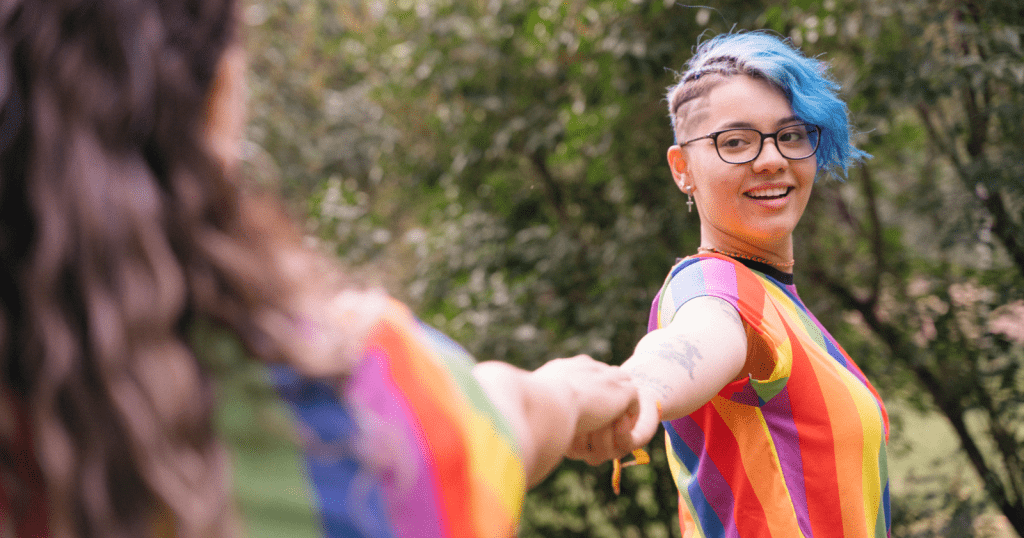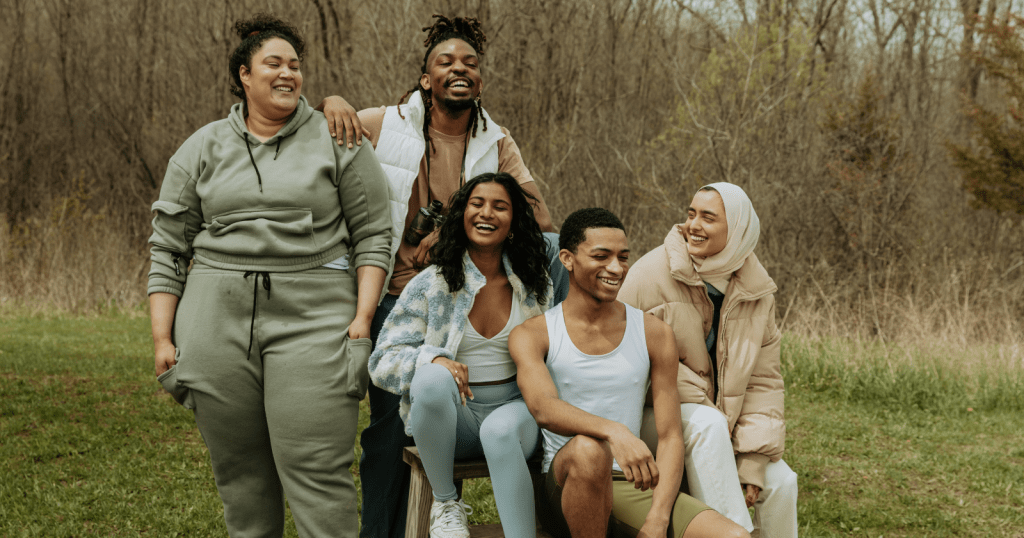Remember those awkward health class talks where the teacher blushed more than the students?
Or the hushed whispers about “those” topics? Sexuality, for so long shrouded in mystery and judgment, is finally stepping into the light.
It’s not just about sex; it’s about identity, expression, and the freedom to be authentically ourselves. Understanding these shifts matters because it directly impacts our relationships, self-esteem, and overall well-being.
Dive in, and you’ll learn how these changes affect you and the world around you.
The Shifting Sands of Acceptance
What was once whispered in dark corners is now shouted from the rooftops – or at least discussed openly on podcasts and in classrooms.
Historically, many cultures have imposed strict rules on sexuality, often rooted in religious or patriarchal beliefs. These rules dictated who you could love, how you could express that love, and even what you could do in the privacy of your own bedroom.
Think about the Victorian era’s obsession with modesty or the outright criminalization of homosexuality in many countries until recently. However, the winds are changing.
Increased visibility of LGBTQ+ individuals, coupled with powerful advocacy movements, has pushed for greater acceptance and legal protections.
We’re seeing more inclusive representation in media and a growing understanding that sexuality is a spectrum, not a rigid binary. This progress, though hard-won, signals a move towards a more compassionate and inclusive world.
Debunking Common Myths and Misconceptions
Let’s face it: there’s a lot of misinformation floating around about sexuality.
One persistent myth is that there’s a “right” way to experience desire or pleasure. This leads to unnecessary shame and anxiety when people’s experiences don’t fit neatly into prescribed boxes.
Another harmful misconception is that certain sexual orientations or identities are “phases” or choices. These ideas not only invalidate people’s lived experiences but also contribute to discrimination and prejudice.
Furthermore, the idea that sex is primarily for procreation, not pleasure, still lingers, especially among older generations. Challenging these myths requires open and honest conversations, access to accurate information, and a willingness to embrace diversity in all its forms.
Understanding that sexuality is complex and personal can foster healthier attitudes and relationships. Seeking clarification and embracing debunked myths is an empowering step.
Personal Stories: Breaking Free from Societal Expectations
I remember when I first started questioning my own sexuality. Growing up in a small town, the only narratives I saw were very traditional – heterosexual, monogamous relationships.
I felt immense pressure to conform, to fit into a mold that just didn’t feel right. It wasn’t until I went to college and met people from all walks of life that I realized there was a whole spectrum of possibilities.
Talking to friends who identified as LGBTQ+, reading books, and exploring different perspectives online helped me understand that it was okay to not fit in.
That realization was incredibly freeing. It allowed me to embrace my true self and to build relationships based on authenticity, not expectation.
I started seeing a therapist, who helped me through my journey. Remember, don’t be afraid to seek support and explore different avenues of help.
The Impact of Media and Representation
The media we consume plays a huge role in shaping our understanding of sexuality. For years, mainstream media often portrayed narrow and stereotypical depictions of LGBTQ+ individuals, reinforcing harmful biases.
Think about the “gay best friend” trope or the often sensationalized portrayals of transgender characters. However, things are slowly changing. We’re seeing more nuanced and authentic representations of diverse sexual orientations and gender identities in film, television, and literature.
Shows like Sex Education and Pose are praised for their inclusive storytelling and honest portrayal of sexual experiences. This increased visibility can have a profound impact, especially on young people who are still figuring out their identities.
When they see themselves reflected in media, they feel less alone and more empowered to embrace their true selves.
Let’s celebrate these positive changes, while also pushing for continued progress and more diverse representation across all platforms.
Navigating Relationships in a More Open World
As societal norms around sexuality evolve, so too do our relationships. Traditional models of monogamy are being challenged by concepts like ethical non-monogamy, polyamory, and relationship anarchy.
These alternative relationship styles prioritize consent, communication, and individual autonomy. It’s not about rejecting commitment or love; it’s about redefining what those concepts mean to different people.
Navigating these waters requires a lot of self-awareness, honest communication, and a willingness to challenge your own assumptions.
Are you ready to challenge the conventional ideas that hold you back? If you’re considering exploring ethical non-monogamy, take some time to reflect on your values and boundaries.
Communication is key – talk openly and honestly with your partner about your needs and expectations. There’s no one-size-fits-all approach to relationships. The goal is to create a dynamic that feels authentic and fulfilling for everyone involved.
The Importance of Comprehensive Sex Education
One of the biggest barriers to healthy attitudes about sexuality is a lack of comprehensive sex education.
Many schools still focus solely on abstinence or provide limited information about reproduction, neglecting important topics like consent, healthy relationships, sexual orientation, and gender identity.
This leaves young people vulnerable to misinformation, shame, and potential harm. Comprehensive sex education empowers individuals to make informed decisions about their bodies and relationships.
It teaches them about respect, boundaries, and the importance of communication. It also helps to reduce stigma and promote healthier attitudes towards sexuality.
Advocating for comprehensive sex education in schools and communities is crucial for creating a more informed and empowered generation.
If you’re looking to deepen your understanding of relationships and intimacy, consider The 5 Love Languages, a helpful guide for navigating emotional connections.
Challenges and Pushback: The Road Ahead
While progress has been made, it’s important to acknowledge that challenges and pushback remain. Many communities still hold deeply ingrained beliefs about sexuality, leading to discrimination, prejudice, and even violence.
LGBTQ+ individuals continue to face discrimination in housing, employment, and healthcare. Transgender people, in particular, are often targeted by hateful rhetoric and discriminatory laws.
Religious institutions often grapple with reconciling traditional teachings with evolving societal norms. Overcoming these challenges requires continued advocacy, education, and a commitment to creating a more inclusive and equitable society.
It means challenging harmful stereotypes, speaking out against injustice, and supporting organizations that are working to promote LGBTQ+ rights. Love and intimacy must be available to everyone in society.
Embracing a Future of Inclusivity and Acceptance
The journey from taboo to trend is far from over, but the momentum is undeniable.
We’re moving towards a world where sexuality is celebrated, not condemned; where individuals are free to express their true selves without fear of judgment; and where relationships are built on mutual respect and consent.
This requires a shift in mindset – a willingness to challenge our own biases, to listen to diverse perspectives, and to embrace the beautiful complexity of human sexuality.
“Each time a man stands up for an ideal, or acts to improve the lot of others, or strikes out against injustice, he sends forth a tiny ripple of hope, and crossing each other from a million different centers of energy and daring those ripples build a current which can sweep down the mightiest walls of oppression and resistance.” – Maya Angelou
Remember, every act of acceptance, every honest conversation, and every step towards understanding contributes to a more inclusive and compassionate future. Let’s foster the emotional bonds that unite us.
Conclusion
Imagine a world where conversations about sexuality are as commonplace and comfortable as discussing the weather. That’s the direction we’re heading, but it requires us to actively dismantle the walls of stigma and ignorance.
This journey isn’t just about tolerance; it’s about celebrating the vibrant spectrum of human experience. By embracing inclusivity, promoting education, and fostering open dialogue, we can create a society where everyone feels empowered to live authentically.
The evolution of sexuality norms is a testament to our capacity for growth and compassion. Let’s continue pushing forward, together.

Alexandra Rivera is a passionate educator and advocate with over a decade of experience championing sexual and gender equality. With a background in sociology and gender studies, Alexandra has dedicated her work to promoting inclusivity, understanding, and empowerment for individuals of all identities. Through education, storytelling, and advocacy, she strives to break down stigmas and foster a world where everyone feels seen, respected, and celebrated. She is also a self-proclaimed artist channeling her creative side on pottery and sketching.





